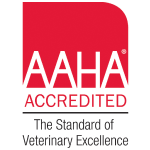Wellness & Preventative Care
Consistent wellness care is the foundation of your pet’s health. Routine exams allow us to detect changes early, prevent disease, and help your pet stay happy and healthy at every stage of life. At South Hyland Pet Hospital, we are committed to providing personalized, proactive care to support your pet throughout their lifetime.
Why Wellness Care Matters
Pets age faster than we do, which means health problems can progress before obvious symptoms appear.
Routine wellness visits allow us to:
- Detect illness early
- Monitor year-to-year changes
- Provide tailored nutrition and weight-management guidance
- Prevent parasites and disease
- Adjust care as your pet’s needs change
- Help your pet live a longer, healthier, more comfortable life
Preventative care is one of the most effective ways to protect your pet’s long-term health.
Life-Stage Wellness Recommendations
Puppies
The first few months are critical for growth and development. We provide guidance and tools to help your puppy become healthy, happy, and well-behaved.
We can help you with:
- Nutrition
- Training
- Behavior
- Socialization
Schedule your puppy’s first exam as soon as possible. Until their initial vaccines are complete, puppies are at risk for several serious but preventable diseases.
Vaccinations:
- Rabies
- DHPP- protects against Distemper, Adenovirus [Hepatitis], Parainfluenza, and Parvovirus
- Bordetella – protects against Kennel Cough
- Leptospirosis
Additional vaccines may be recommended depending on your puppy’s lifestyle and risk factors.
- Lyme
- Influenza
Parasite prevention:
Most puppies carry roundworms, which can cause vomiting, diarrhea, or other gastrointestinal signs, though some puppies show no symptoms. Roundworms are zoonotic parasites, meaning they can be transmitted from pets to people. Treating your puppy protects both their health and your family.
Kittens
The first few months are crucial in your kitten’s growth and development. We provide guidance, support, and practical tools to help your new kitten grow into a healthy, happy, and well-adjusted cat.
We can help you with:
- Nutrition
- Litter box habits
- Behavior
- Creating a safe home environment
Schedule your kitten’s first exam as soon as possible. Until their initial vaccines are complete, kittens are at risk for several serious but preventable diseases.
Vaccinations:
- Rabies
- FVRCP – protects against Feline Viral Rhinotracheitis, Calicivirus, and Panleukopenia
- FeLV – Feline Leukemia Virus, depending on risk
Parasite prevention:
Most young kittens carry roundworms, which may cause coughing, weight loss, or a potbellied appearance, though some kittens show no symptoms. Roundworms are zoonotic parasites, meaning they can be transmitted from pets to people. Treating your kitten protects both your pet and your family.
Adult Cats & Dogs
Annual diagnostic and wellness exams help ensure your pet is healthy and allow us to detect hidden diseases early. Early detection improves outcomes, reduces medical costs, and helps your pet live a longer, healthier life.
Pets often hide subtle signs of illness. The risk of conditions such as arthritis, cancer, diabetes, heart disease, hormone disorders, and kidney or liver problems increases with age.
During your pet’s wellness exam, we will:
- Perform a complete physical assessment from nose to tail
- Ensure vaccinations and preventive care are up to date
- Conduct diagnostic testing, including blood, fecal, and urine to screen for parasites and underlying diseases
- Recommend dental care as needed
As your pet approaches their senior years, we may recommend bi-annual exams and additional baseline lab work. This allows us to track changes over time and identify health concerns early.
Senior Pets
Dogs and cats require more attention and specialized care as they age. Most pets are considered senior around 7 years, though this varies by breed and size. Regular exams help monitor changes, detect early warning signs, and provide timely care to keep your senior pet healthy, comfortable, and active.
Why Senior Care Matters
Early diagnosis is critical in senior pets. The risks of arthritis, cancer, diabetes, heart disease, hormone disorders, and kidney or liver problems increase with age. Many pets hide signs of illness, so diseases may not be obvious until advanced stages.
Senior status varies depending on your pet’s breed and size:
- Smaller dogs often live longer than larger dogs
- Cats generally live longer than dogs
We can help you determine your pet’s life stage and plan care accordingly.
Recommended Exams for Senior Pets:
- Bi-annual wellness exams
- Baseline lab work to establish what is normal for your pet
Supporting Quality of Life
Senior care is about more than managing disease—it is about helping your pet thrive. We focus on:
- Treating symptoms often attributed to aging
- Identifying and managing cognitive dysfunction syndrome (similar to Alzheimer’s in humans)
- Reducing or preventing pain
- Providing nutrition and exercise plans tailored to your pet
- Recommending environmental modifications to keep your pet comfortable
Wellness Plans
Our Wellness Plans make preventative care easier and more affordable by spreading costs over monthly payments. Plans include recommended exams, vaccinations, screening tests, and preventive services based on your pet’s life stage.
Check out our Resources page to learn more about Wellness Plans.
Ready to Schedule or Have Questions?
Call or text: (952) 884-1868
Request an Appointment: PetDesk App
Email: southhyland@southhyland.com
Your pet deserves consistent, thoughtful care. We are here to help you give them the healthiest life possible.

